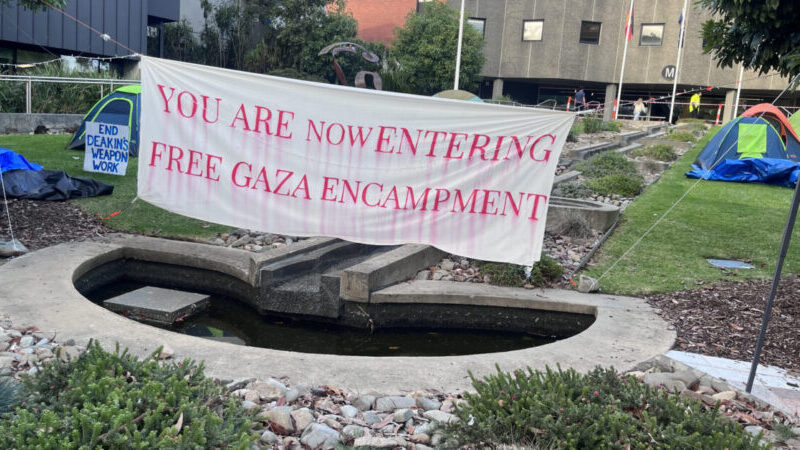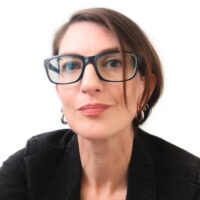Falacious definitions have led to claims of ‘record levels of antisemitism’ in NSW universities, but are not supported by facts presented to the NSW inquiry, Emma Thomas writes.
The contentious definition of antisemitism championed by the International Holocaust Remembrance Alliance (IHRA) and recently adopted by Universities Australia (UA) faces further criticism in submissions to the NSW antisemitism inquiry.
The IHRA definition and its UA spinoff are symptomatic of a larger effort to conflate critique of Israel and Israeli politics with anti-Jewish prejudice and hatred. As the submissions show, this is a conflation that many Jewish individuals and organisations reject.
Some even question the inquiry’s premise that the state’s university campuses are home to ‘record levels’ of antisemitism in the first place.
NSW antisemitism inquiry. Jewish organisations reject Zionist claims
Jewish community challenge
The claim that NSW universities are hotbeds of antisemitism ‘rests on a fallacious definition of antisemitism […] and misrepresented data’, according to one Jewish group.
This claim, writes another, ‘can only be made due to the universities adopting a dubious definition by the IHRA, which has broadened the definition to scapegoat the war crimes committed by the Zionist state of Israel.’
When critique of Israel is deemed inherently antisemitic, it not only skews data, but produces generalisations about Australian Jews and Jewish identity that are ‘facile’, ‘untenable’, ‘inaccurate’ and ‘harmful’, submissions to the inquiry state.
Many express concern that such generalisations only contribute to antisemitism by promoting the idea “that all Jewish people think in a certain way.” A conflation of Judaism with Zionism, one group argues, actually works to hold Jews “collectively responsible for Israel’s actions,” which run directly counter to the stated goals of IHRA and UA.
Freedom of political expression
The adoption of the UA definition of antisemitism by Australian universities is seen by many as a direct and deliberate attack on the right to freedom of political expression, specifically when it is used to advocate for Palestinian rights. As one Jewish Australian states:
“Recent changes to the definition of antisemitism within our universities in NSW are a stark example of the misuse of this term to silence pro-Palestine voices, including the many Jewish Australians like me who support Palestine.”
The NSW Council for Civil Liberties agrees and urges UA to reconsider its endorsement of a definition that risks “censoring legitimate views on geopolitics.” Universities “must remain spaces for free intellectual inquiry,” states another coalition, not places that suppress “political discourse and student activism.”
The Gaza solidarity encampments, established by university students across Australian campuses last year, were indicative of the kind of student activism that many sought to
shut down by way of charges of antisemitism.
But many Jewish writers to the inquiry dispute characterisations of the encampments as antisemitic. A Jewish PhD student reports: “I was present during the student encampment action and in no way felt threatened or discriminated against because of my Jewish heritage. On the contrary, the encampment was an expression of Australia’s vibrant democracy.”
Other Jewish members of the state’s university communities, both staff and students, report finding “solidarity and camaraderie” with others calling for “the liberation and self-determination of Palestine.” Those who report antisemitism, writes another Jewish supporter of Palestine, “often seem to be pro-Israeli provocateurs intent on fomenting confrontations.”
Counterclaims
Many of the counterclaims in pro-Israel submissions to the inquiry confirm the above critiques. Among its examples of campus antisemitism, one organisation lists not only the student encampments as sites of “anti-Israel” activity, but also academic staff, including legal scholars and historians, “expressing solidarity with Palestinian factions and against Israel.”
The student encampments are described as “inane, unoriginal, childish, unlawful and self-indulgent” in another submission. The author of that submission is known for dressing up in an octopus costume as part of an action organised by Israeli-Australian Ofir Birenbaum, of the Cairo Takeaway stunt fame, to protest NSW Greens MP, Jenny Leong early last year.
Cairo Takeaway stunt. Building antisemitism one caper at the time
The same author denounced the encampments as a “new Jim Crow” – a reference to the structural and systemic racial discrimination targeting African-American men via the United States’ criminal justice and mass incarceration systems.
In another comparison, this time to Nazism, one organisation argues that safe spaces for Jewish members of the campus community “are equivalent to ghettos.” This from an organisation claiming to ‘support fact-based research and education, countering misinformation and harmful narratives,’ who should recognise that Nazi ghettos were a far cry from safe spaces for European Jews.
Evidence-based approaches
Fact-based research is, in fact, what many submissions say is lacking in the current debate about antisemitism on campus and beyond.
How prevalent is antisemitic violence and discrimination in NSW? How is it assessed? Is it increasing? How do Jewish experiences compare to the experiences of other racialised populations and those of the NSW population more generally? These are among the questions that one writer suggests the inquiry committee still needs to consider.
‘Robust data’ and evidence-based approaches, rather than politicised definitions and ‘bogus accusations’, are needed to address issues of antisemitism, racism and discrimination in NSW, many agree.
And as it stands,
there is no credible, independently sourced evidence of record levels of antisemitism on university campuses
or in schools, let alone any undermining of student safety.
Dr Emma Thomas is a researcher and writer based in the Greater Sydney area. As a historian, she has spent the last fifteen years studying and teaching at universities in Australia and the United States. One of the first things she teaches all her students is that opinions and evidence-based arguments are not the same thing.

